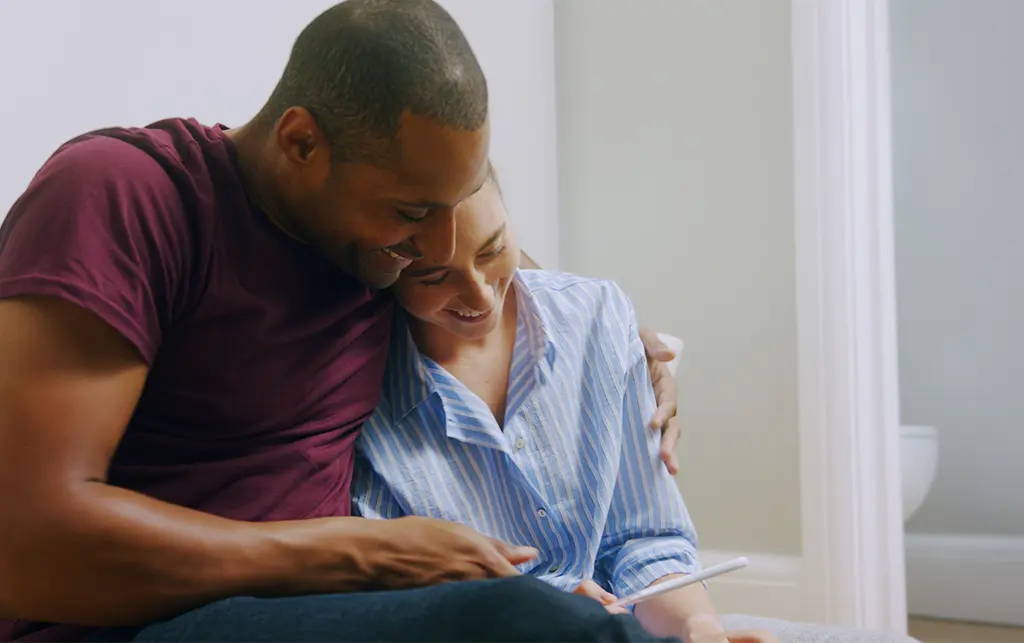
Share
What to Expect in My 1st Trimester

So, you’re pregnant? Congratulations! But what happens now? Well, you’re starting your first trimester, so we thought we’ve cover some of the FAQs about this stage in your pregnancy.
First trimester: The basics
Let’s look at the basics – what is the first trimester and what are some of the big things to look out for.
What is the first trimester?
As the name suggests, the first trimester is the first stage in your pregnancy. It’s where your baby develops from a fertilised egg to a foetus.
How long does my first trimester last?
The first trimester starts on the day of your last period and runs until the end of week 12 of your pregnancy. From here, you’ll start your second trimester.
Is there a scan during the first trimester?
The first main scan of your pregnancy is the 12-week scan, which is right at the end of trimester one. However, depending on the type of pregnancy you have or other possible issues, your doctor may refer you for an earlier scan to make sure the foetus is developing as it should.
Will I see my midwife during the first trimester?
Yes, your first midwife appointment should be before you’re 10 weeks pregnant. Again, this will vary depending on any issues or concerns.
What tests are needed in the first trimester?
There are certain screening tests you will need to consider over the course of your pregnancy, but the tests you will be offered in your first trimester are for sickle cell and thalassaemia, that’s because these need to be offered before 10 weeks of pregnancy. To find out more about them, the NHS website has a useful guide.
What happens during my first trimester?
So, now we’ve got the basics out of the way, let’s look at you and how your body changes over the first 12 weeks of pregnancy.
What symptoms will I experience?
Many symptoms don’t kick in until your pregnancy is well under way, however, during the first trimester it’s still possible to experience:
Nausea
Bloating
Cramping
Sore breasts
Weight gain
Needing the toilet more frequently
Light spotting or a white discharge
What happens to my body?
Your body will be undergoing a lot of change on the inside, but much of it will not be visible to other people. If this is your second or third child, you may start to show earlier otherwise you probably won’t start to show signs of pregnancy until you reach the second trimester.
Other changes you will experience include having thicker hair, heighted sense of smell, cravings for specific foods or a dislike for others, and you will start to feel more tired as your body begins to adapt to all the changes.
What happens to baby during my first trimester?
Now you know what changes you can expect to experience during your first trimester, let’s look at your little one. This first trimester sees a lot of development, but what’s involved?
Baby’s development in the first trimester
During the first trimester, your baby will undergo huge changes that see them developing from a fertilised egg to a foetus. While there is still a long way for them to go beyond 12 weeks, during the first trimester:
Your egg becomes fertilised
The fertilised egg makes a home in the uterus lining
Skin, nervous system, eyes and inner ears begin to form
The neutral tube closes going on to form the spinal cord and brain
Their heart and other organs are beginning to progress
Baby’s head develops
Baby’s nose starts to form, and their ears and eyes continue developing
They form arms, legs, fingers, and toes
They begin to develop fingernails
Will I feel my baby moving?
Traditionally, pregnant people don’t feel their baby moving until well into their second trimester – sometime after 16 weeks – so you will probably not feel them during this period. Don’t worry though, they’re keep themselves very busy.
How much weight does baby gain?
By the end of the first trimester, baby’s weight will be around 18g or the size of a plum. They will be approximately 5.5cm long.
Summary
So, there you have it. That’s hopefully what you can come to expect from your first trimester. It’s important to remember that everyone experiences pregnancy differently so while you may be expecting certain changes or symptoms, you might not experience them straight away or at all.
As with all stages of pregnancy, if you’re unsure about how you’re feeling then make sure you talk to friends and family who have been through it. If you still need reassurance, then consult your GP or midwife – they’ll be only too happy to allay any fears or provide more context.
Congratulations and all the best with your first trimester!

